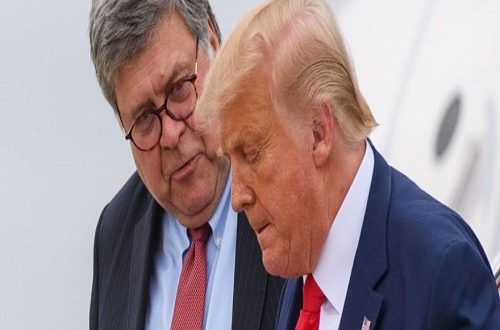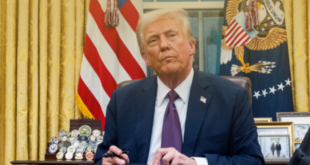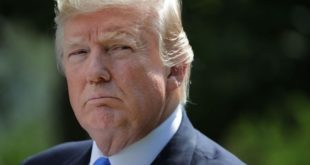A smooth transition of power in the US is looking less likely with Donald Trump blocking co-operation with Joe Biden’s team and the US attorney general authorising investigations into allegations of electoral fraud.
The Electoral College is scheduled to formally confirm Mr Biden’s victory on 14 December with the Democrat being sworn into office in late January.
The Electoral College is scheduled to formally confirm Mr Biden’s victory on 14 December with the Democrat being sworn into office in late January.
However, few Republicans have acknowledged the victory and some, including Senate majority leader Mitch McConnell, have rallied behind Mr Trump’s efforts to fight the election results.
On Monday, Mr Barr authorised the Justice Department to investigate “substantial” allegations of voter irregularities and election fraud, though no widespread instances of that type of trouble exist.
In a memo to US lawyers, obtained by The Associated Press, Mr Barr wrote that investigations “may be conducted if there are clear and apparently-credible allegations of irregularities that, if true, could potentially impact the outcome of a federal election in an individual state”.
Advertisement
Election officials from both political parties have publicly stated that voting went well. International observers also confirmed there were no serious irregularities.
States have until 8 December to resolve election disputes, including recounts and court contests over the results.
Legal challenges have been dismissed in battleground states like Georgia and Wisconsin.
On Monday night, the Justice Department’s top prosecutor for election crimes, Richard Pilger, said he would step down from that post in response to the attorney general’s memo, according to an email he sent to colleagues and obtained by the AP.
Biden campaign lawyer Bob Bauer said Mr Barr’s memorandum authorising investigations “will only fuel the ‘specious, speculative, fanciful or far-fetched claims’ he professes to guard against”.
Sky News
Ghana | Atinkaonline.com
 Home Of Ghana News Ghana News, Entertainment And More
Home Of Ghana News Ghana News, Entertainment And More





